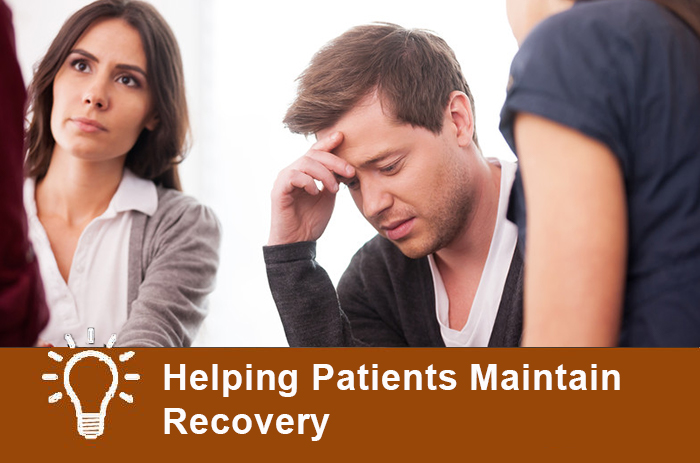Helping Patients Maintain Recovery
The Carlat Psychiatry Blog, Volume , Number ,
https://www.thecarlatreport.com///
Excerpted from a past issue of The Carlat Addiction Treatment Report, Matthew Goldenberg, DO, Founder of Professionals Health Solutions and assistant professor of psychiatry at Cedars-Sinai Medical Center, offers the following advice: Enhance your patients’ courage. Many people with SUDs may not think of themselves as brave, but it takes guts to face an addiction. These patients often fear detox, fear letting go of their primary coping mechanism (drugs or alcohol), and fear where their addiction could lead them. In many cases, they cannot remember or imagine a life without drugs or alcohol. You can enhance your patients’ courage by helping them identify and focus on pre-addiction accomplishments and achievements. Use motivational interviewing. Individuals with SUDs are used to being lectured and threatened with consequences like jail. In other words, they’re used to people trying to externally motivate them. But recovery requires internal motivation, and this is much more effectively developed through a non-judgmental approach. Motivational interviewing invites patients to elaborate on their own reasons for wanting to stop using. Educate patients about 12-step programs and support options beyond those programs. Many recovering individuals seek support in 12-step meetings, but they don’t resonate for everyone. Let your patients know early on that there are other mutual self-help options, such as SMART recovery and Refuge Recovery meetings. Encourage sober friendships. Many people fear they will lose their friends and community once they enter recovery. They need to know about recovery’s silver lining: It helps them find out who their real friends are. Encourage patients to strengthen relationships with old friends who support sobriety, and to make new friends who embrace a healthier lifestyle. Teach healthy coping skills. For many patients, their substance of abuse is their primary coping skill. If they don’t replace that substance with something else that works, they’re unlikely to succeed at sobriety. Teaching your patients tools like mindfulness, meditation, exercise, journaling, talking to a friend, listening to music, or doing other stress-relieving activities can help them cope with strong emotions. Teach honesty. Many people with SUDs are ashamed to admit they have a problem, and this can make it hard to be honest about the struggles they are facing. Reminding patients you’re there to help, not to judge, can encourage them to develop a foundation of trust with you. One useful tool is to ask patients to write a letter expressing their uncomfortable thoughts and feelings about addiction, and then not send it. This exercise promotes honest expression without fear of judgment or other repercussions. Subscribers can read the full article. Not a subscriber? Join here.


